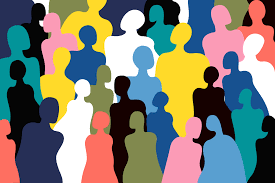Nuance Audio is a new option for people who resist traditional aids, from the company that makes Ray-Bans and operates LensCrafters.
Seekers of Meaning Podcast Posted Online March 7, 2025
What's Next Longevity Deal Talk Episode 32, January, 2025
Presentation: What's Next Longevity Venture Summit, June, 2025

 The frustration of the user experience. February was short but busy – but a topic emerged on the last day of January that is beginning to take shape in the form of interviews and insights from others. All agree that the user experience, whether it is a car, a microwave,
The frustration of the user experience. February was short but busy – but a topic emerged on the last day of January that is beginning to take shape in the form of interviews and insights from others. All agree that the user experience, whether it is a car, a microwave,  Publicly available up-to-date stats about the older adult population is weak or non-existent. The most recent version of ChatGPT admits it cannot state the current population in the US that is aged 75+. Nor can Google. This is somewhat surprising, given the angst in business and market predictions about the aging of the US population and the potential doom that it portends. But anyway, the answer is buried in Census tables. Would you be surprised to learn that there are 25.7 million people aged 75+ today? That 14.8 million are women and 10.8 million are men? Would it surprise that 42% of the 65+ population (60.5 million) is aged 75+?
Publicly available up-to-date stats about the older adult population is weak or non-existent. The most recent version of ChatGPT admits it cannot state the current population in the US that is aged 75+. Nor can Google. This is somewhat surprising, given the angst in business and market predictions about the aging of the US population and the potential doom that it portends. But anyway, the answer is buried in Census tables. Would you be surprised to learn that there are 25.7 million people aged 75+ today? That 14.8 million are women and 10.8 million are men? Would it surprise that 42% of the 65+ population (60.5 million) is aged 75+? The more things change. January 2024 brought announcements, updates and a plethora of new tech, some a dream in the eye of a startup, some in the market and some likely to improve lives, if not right away than soon. In fact, the most intriguing aspect of the month of CES 2024 was how much like previous events it was – and yet it was the first post-Covid big event, and the first for many new to the tech industry. Also 2024 is shaping up to be a big year of change for the older adults-tech market – some actually think it is disappearing into the tech market for all. Maybe! Here are the six blog posts from January 2024:
The more things change. January 2024 brought announcements, updates and a plethora of new tech, some a dream in the eye of a startup, some in the market and some likely to improve lives, if not right away than soon. In fact, the most intriguing aspect of the month of CES 2024 was how much like previous events it was – and yet it was the first post-Covid big event, and the first for many new to the tech industry. Also 2024 is shaping up to be a big year of change for the older adults-tech market – some actually think it is disappearing into the tech market for all. Maybe! Here are the six blog posts from January 2024: Is the user experience deteriorating?
Is the user experience deteriorating?